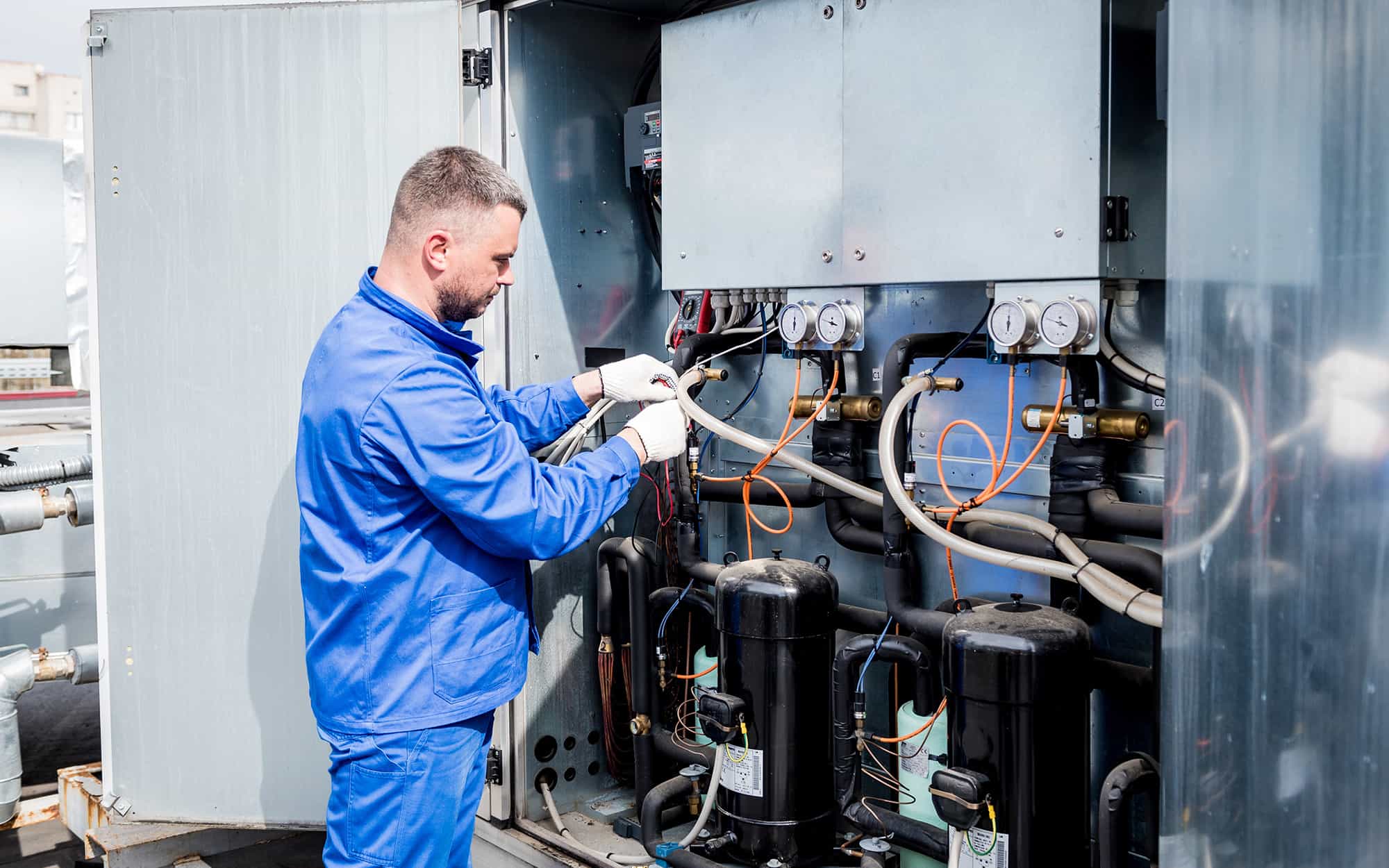
To put it lightly, New York’s late-fall and winter months can be chilly. That’s why having heating systems that run well is vital for commercial businesses throughout The Big Apple. However, understanding how to identify, prevent, and avoid HVAC failure can be confusing, and you may have a few questions, like:
- What are a few tell-tale signs I’m dealing with mid-season HVAC failure?
- What do I need to know before troubleshooting my HVAC equipment?
- Does commercial HVAC maintenance help prevent system issues?
Continue reading to discover everything you need to know about preventing mid-season HVAC failure.
Understanding Common HVAC Problems: FAQs You Need To Know
It’s important to note every machine malfunctions with age; and unfortunately, your company isn’t immune to mid-season HVAC failure. If you’re looking to stay ahead of HVAC issues, here’s what you need to know:
What Are a Few Tell-Tale Signs I’m Dealing With Mid-Season HVAC Failure?
The following factors are solid indications your HVAC is having problems:
Poor Airflow
First and foremost, if you notice a change in air production, that’s a telltale sign your HVAC unit is experiencing problems. Inconsistent airflow can often be traced back to dirty air filters, as commercial HVAC filters remove dust, pollen, and germs from your office’s air. However, with constant use, they eventually become saturated with particulate matter, affecting your system’s airflow.
Luckily, it’s an easy issue to fix. If you notice your HVAC output recently decreased, it’s time to invest in professional repairs. During these service appointments, HVAC experts will come out and safely remove your filters, replacing them with clean ones. Having fresh air filters installed multiple times per year goes a long way to improving the air quality in your building.
Increased Utility Bills
HVAC units account for roughly 60 percent of energy consumption in commercial buildings. But, that’s assuming your system runs well. If you’ve been neglecting HVAC care, the energy required to power inefficient HVAC systems can be much higher—anywhere from 70 to 80 percent.
As HVAC systems get older, wear and tear occurs, damaging the operational efficiency of your unit. To compensate for the wear, your system needs to work harder, and increases its energy consumption to do so. If you’ve noticed utility bills increasing over the last few months, that’s a solid sign you could be headed toward mid-season HVAC failure.
Noisy Ventilation Systems
Lastly, if your ventilation system starts making unusual noises, it’s safe to assume there’s an internal issue. The cause of strange noises vary, so the only way to accurately pinpoint the issue is with a professional’s help.
Schedule an inspection with one of your local HVAC contractors, and they’ll take a look at your unit to identify where the strange noises originate. Generally speaking, unusual sounds are caused by the following factors:
- Loose bolts, which result in internal parts separating.
- Internal parts falling off larger pieces, causing a rattling noise.
- Wear and tear on fan belts, causing friction between interior elements.
Regardless of the cause, you’ll need to schedule a professional assessment to accurately pinpoint problem areas.
How Can I Troubleshoot My HVAC Equipment?
Look, we get it. If you’re noticing any of the above complications, it’s tempting to try and fix the problems yourself. However, be cautious, as HVAC units are dangerous systems, and DIY repairs could put you in harm’s way.
As a helpful tip, avoid troubleshooting any internal issues, as working inside the system could expose you to the following threats:
Electrical Shock: HVAC systems are littered with electrical wiring. As time passes, wires can corrode and leave open circuits throughout your system. Without the proper training, you could accidentally touch the wrong electronic components, potentially electrocuting yourself.
Fire or Combustion: If your HVAC system is powered by natural gas or propane, mishandling it could cause fires or explosions.
Carbon Monoxide: If your HVAC issues revolve around airflow, fumes or carbon monoxide can be present in your unit, leading to poisoning or death.
With that being said, there’s still a few ways of troubleshooting HVAC problems without getting deep into your unit, including:
Refill Refrigerant Levels
In HVAC systems, refrigerant is a liquid chemical agent responsible for the cold air your unit produces. If you notice issues cooling your building, it’s possible all you need is new refrigerant. There are a few guides online detailing the process of DIY refills. However, partnering with a professional HVAC service is hands-down your safest option.
Clear Drain Lines
Another common but fixable HVAC problem is clogged drain lines. When your HVAC circulates air, condensation forms, so drain lines carry moisture away from your unit. Over time, algae or debris can clog your drain lines, causing water to overflow into your system. To combat this, try clearing your drain lines or buying new tubing altogether. If you’d rather leave the replacement process to a professional service, good news, as most HVAC maintenance agreements also include drain line care.
Can Commercial HVAC Maintenance Help Me Avoid Equipment Failure?
Simply put, yes. Commercial HVAC maintenance revolves around keeping your equipment in good condition, giving you peace of mind knowing that your system will run how it should. Essentially, by assessing your HVAC’s current status, professionals are able to identify and remediate developing issues before they have a chance to escalate into full-fledged problems down the road.
Struggling With Equipment Failure? Need Emergency HVAC Repairs? It’s Time To React
New York. It’s the city that never sleeps. Heating and cooling issues can happen any time of the day, so why isn’t your HVAC repair service available 24/7?
Enter React Industries. No matter the hour, we offer a quick response to your HVAC emergencies. Whether you need a few tune-ups, new filters, or minor repairs—rest assured knowing our expert technicians are ready to help.